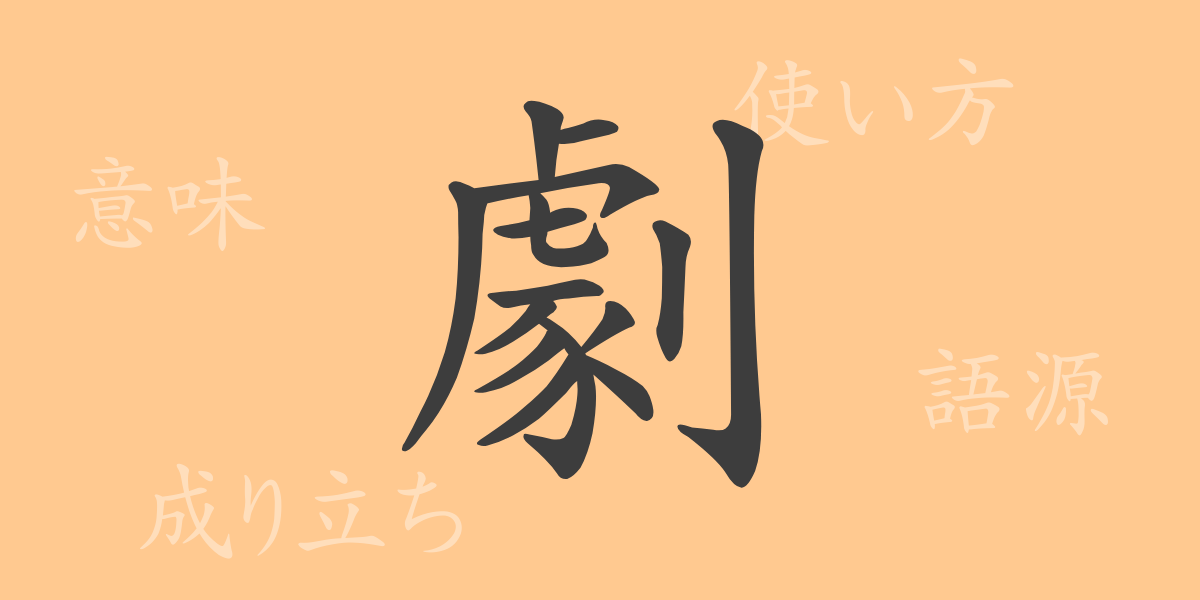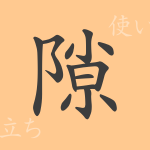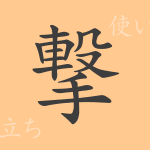The depth of Japanese written culture is immense, and its everyday kanji characters are deeply rooted in the daily lives of the Japanese people. One such kanji, “劇(げき, geki),” is widely used in various contexts within daily life. This article explores the origins, meanings, uses, readings, and idiomatic expressions involving “劇(げき, geki),” uncovering the rich history and culture embedded in this fascinating character.
Origin of 劇(げき, geki) (Etymology)
The origin of “劇(げき, geki)” dates back to ancient China. Originally, it referred to powerful actions or changes. As ancient theater and stage arts evolved to express “intense” emotions, “劇(げき, geki)” became established as a term for plays and drama. This character symbolizes dramatic events and intense emotional changes, a legacy carried into the Japanese language.
Meanings and Uses of 劇(げき, geki)
“劇(げき, geki)” primarily signifies “dramatic” or “intense change” in the form “劇的(げきてき, gekiteki).” It also appears in “演劇(えんげき, engeki),” meaning “theatrical performance,” referring to stories performed on stage. “劇(げき, geki)” is used across various contexts, from everyday conversation to literature and media.
Readings, Stroke Count, and Radical of 劇(げき, geki)
The essential details of the kanji “劇(げき, geki)” are as follows:
- Readings: The on’yomi (Chinese reading) is “ゲキ(げき, geki).” There is no kun’yomi (Japanese reading).
- Stroke count: “劇(げき, geki)” consists of 15 strokes.
- Radical: The radical is “力(ちから, chikara),” meaning strength or power.
Idioms, Expressions, and Proverbs Using 劇(げき, geki)
Numerous idioms, expressions, and proverbs incorporate “劇(げき, geki),” reflecting its meanings of intensity and drama. Here are a few examples:
- 劇場 (げきじょう, gekijou): A place where plays or movies are shown.
- 劇団 (げきだん, gekidan): A troupe or group specializing in theater.
- 劇作 (げきさく, gekisaku): The act of creating a play, or the play itself.
- 劇薬 (げきやく, gekiyaku): Extremely potent medicine.
- 劇変 (げきへん, gekihen): Rapid or dramatic change.
These idioms and expressions strongly reflect the connotations of “intensity” and “dramatic” inherent in “劇(げき, geki).”
Conclusion on 劇(げき, geki)
The kanji “劇(げき, geki),” as its form suggests, has been used to represent intense impressions and dramatic changes. Dramatic events profoundly impact people, making this kanji frequently used in various contexts. It is also commonly seen in words related to theater, like “劇場(げきじょう, gekijou)” and “劇団(げきだん, gekidan),” underscoring the importance of “劇(げき, geki)” in Japanese culture. We hope this article has helped you understand the diverse aspects of “劇(げき, geki).”

























